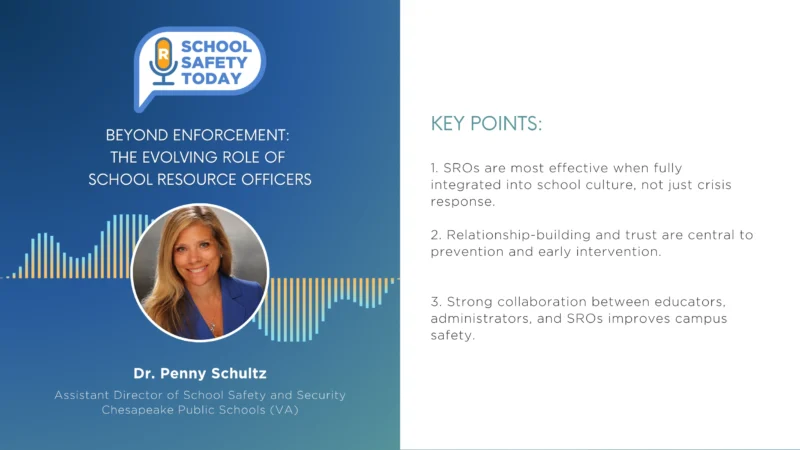How the Use of K9’s Can Change the Culture & Climate on Campuses
On the latest episode of Secured, host Mike Matranga of M6 Global Defense welcomes Greg Guidice, President and CEO of Zebra K9, to discuss the critical role K9 units play in enhancing security and well-being across multiple sectors. Greg shares how Zebra K9 has evolved from primarily explosive detection to addressing emerging needs in K-12 schools, hospitals, and event security through specially trained safety dog teams.
Zebra K9’s approach combines traditional safety measures with innovative mental health support. Greg highlights how “floppy-eared” dogs offer a softer, approachable presence, helping de-escalate situations and creating comfort zones for students and staff. These dogs, unlike their “pointy-eared” counterparts often associated with law enforcement, are strategically selected to blend into environments where they might be perceived more as a pet than a security measure. This approach enables students to interact naturally, allowing them to share concerns and even confide in handlers, providing a non-invasive layer of safety.
Greg explains how Zebra K9’s operations have expanded into K-12 schools, noting that the presence of these dogs often serves as a proactive deterrent for both weapons and vapes, while also supporting students facing emotional and mental health challenges. Together, Mike and Greg address the importance of integrating proactive and preventive measures, such as canine units, into security strategies over solely relying on reactive technologies like metal detectors and panic buttons.
This episode underscores the unique role of K9 units in creating a safer, more supportive environment for students, staff, and visitors. Greg and Mike advocate for a balanced approach to security—one that prioritizes human connection, proactive intervention, and psychological support, contributing to a safer and healthier school environment.




